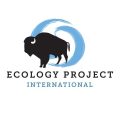Job Type: Seasonal
Job Description
About Ecology Project International: EPI is an international non-profit dedicated to addressing critical conservation issues through field-based partnerships between local experts and middle/high school students. We engage adolescents from local communities and visiting youth from other regions in applied hands-on science and conservation as they learn about and help protect threatened species and habitats. EPI’s programs in the U.S. and Latin America inspire the next generation of environmental leaders to engage in conservation efforts at home and around the world. More information can be found at www.ecologyproject.org.
Current Openings: EPI Hawaiʻi is currently looking to fill one instructor role during the 2023 summer field season. Based on Maui, HI.
Schedule and Location: The Hawaiʻi Island Ecology program will run from early May 2023 through the beginning of August 2023. Instructors will work approximately 5 field courses during the program season. Each course includes: 1-2 days of pre-course preparation, 7-9 field days, and 1 – 1.5 days of post course clean-up / closing. Instructors will typically have a week or so off between courses. Total expected work days during the season is 54-60 days.
Instructors are also required to participate in unpaid pre-employment training prior to the start of their first course in early May. Pre-employment training will consist of some online modules to be completed at the candidate’s own pace a-synchronously, and a couple days of in-field training on Maui from May 4th – 6th. In-field training expenses and meals are covered, but no wages will be paid to instructors.
Compensation:
- $150 – $200 per day starting wage, determined by evaluation of prior experience and qualifications. Total expected compensation $8,800 – $11,000
- Instructors designated as course leaders will make an additional $10 a day.
- Room and board while on-course.**
**Instructors will be responsible for securing their own lodging and transportation between courses
Description: Field instructors in the EPI’s Hawaii Program lead seven to nine-day field ecology courses for teenage students and teachers on the island of Maui, Hawaiʻi. Our programs introduce students to real-world scientific study, engage them in conservation service projects, and raise their cultural and ecological awareness.
The program emphasis is watershed ecology, sustainable living, and conservation within a cultural context. Groups will participate in land and water-based conservation efforts in support of state and federal endangered species recovery efforts. Students will collect data on invasive plant species and conduct marine-life snorkel transects to collect data for on-going reef monitoring projects that support community-based conservation initiatives. Students will also be immersed in local Hawaiʻian culture and participate in ecological restoration activities to learn unique perspectives and tools for addressing sustainability challenges.
An ideal candidate will demonstrate experience and aptitude in environmental education, field research, outdoor leadership, and/or the ecology, geography, and cultures of the Hawaiʻian Islands. Instructors work as a team of three with support from program staff to plan, lead, and teach EPI’s curriculum. Instructors coordinate logistics and opportunities with partners, vendors, group chaperones, and participants to craft an inspirational and educational experience. They are responsible for establishing and maintaining a safe physical and emotional learning environment.
Because of the diversity of Hawaiʻi program participants, EPI staff, and our partners and vendors, field instructors should have the skills to address implicit bias and be culturally responsive in interactions with participants, co-workers, and partners. Instructors are also encouraged to identify ways in which we can enhance inclusivity in planning and implementing our program.
This position also works to identify new and creative ways to cultivate an environment true to our core values: making a positive difference in the world; bringing integrity, honesty, and excellence to all aspects of our work; appreciating the outdoors for education, inspiration and enjoyment; and having fun and thinking BIG!
How to Apply
Please visit the job link for more information and apply through our online portal!Posted on: February 24, 2023
Job Type: Seasonal
Job Starting Date:
5/1/2023
5/1/2023
Application Closing Date:
Priority deadline: Sunday 3/12
Priority deadline: Sunday 3/12
Job Salary Range:
150.00 to 200.00
150.00 to 200.00
Years of Experience: 3 – 5 years
Preferred/Required Degree Level: Not Specified
Job Activity(ies): Community Service, Cross-cultural Interaction, Environmental Studies, Hiking, Snorkeling, Swimming
Population(s) Served: Youth - Teen
Region(s): US
